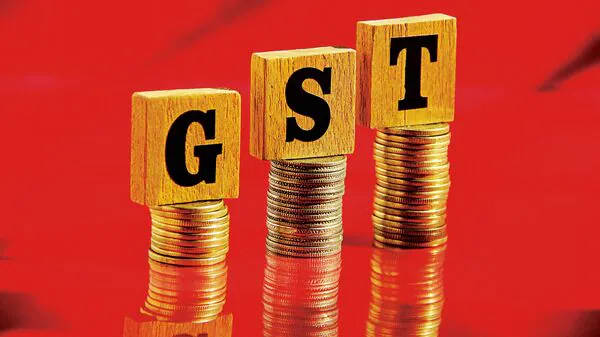Eight States Want GST Rate Cuts To Be Linked To Revenue Guarantee
As such, the GST rate cuts should be backed by a compensation scheme by the central government, they said.
These states have also decided to urge the GST Council to ensure that businesses should pass on the tax benefit to consumers, instead of profiteering.
Kerala finance minister K.N. Balagopal, who was part of the meeting, told Mint,“The benefit of GST relief must be passed on to the final consumer by businesses. The tax rate rationalisation proposals involve huge revenue losses to states and hence they should be compensated.”
Also Read | Profiteering worries cast cloud over GST cutsBalagopal is also a member of the ministerial group set up by the GST Council, which last week approved the GST rate rationalisation proposal. The other states that attended Friday's meeting are Himachal Pradesh, Jharkhand, Karnataka, Punjab, Tamil Nadu, Telangana and West Bengal.
Separately, in a statement, Balagopal said,“All eight states are eager to work with the Union government and the other state governments to ensure that GST rate rationalisation exercise results in beneficial outcomes for all the stakeholders.”
All ministers and representatives who were present at the meeting voiced serious concerns about the substantial revenue loss that may arise from the GST restructure, the statement said.
Rate compressionThe tax rate restructure proposals mainly include compressing the four-rate GST structure into a two-rate regime, with most of the products and services getting shifted to lower slabs.
Accordingly, a range of goods from cars to kitchenware may turn cheaper. The central government's proposal is to implement the change before Deepavali in order to boost demand for goods and services in the economy.
Currently, GST is applied in four slabs - 5%, 12%, 18% and 28%. The plan is to eliminate the 12% and 28% slabs.
Also Read | Modi's GST 2.0 is a high-stakes bet on the Indian consumer. Will it work?Also, the 'compensation cess' levied on luxury items and so-called sin goods like tobacco and caffeinated beverages in the 28% slab will be eliminated. States are now insisting on introducing a fresh duty on some of the items that attracted the cess so that their revenue loss could be minimised. They are also of the view that proceeds of such a duty should be fully transferred to states, which are already experiencing rising fiscal stress alongside an erosion of fiscal autonomy.
The eight states are expected to place half a dozen suggestions before the GST Council when it meets in the capital on 3 and 4 September, said a second person, who is also privy to the developments.
The states believe that GST rate rationalisation should be supported by a robust revenue protection framework.“States' revenue loss must be fully compensated through a scheme similar to the GST compensation cess,” said the person, who spoke on the condition of anonymity.
The Centre should guarantee 14% annual revenue growth for states, the person said, adding that compensation for any revenue loss should be assured for a minimum of five years, beyond which it may be reviewed based on GST buoyancy.
Also Read | GST relief to boost consumer spending, lift FMCG sector's growth Legal Disclaimer:
MENAFN provides the
information “as is” without warranty of any kind. We do not accept
any responsibility or liability for the accuracy, content, images,
videos, licenses, completeness, legality, or reliability of the information
contained in this article. If you have any complaints or copyright
issues related to this article, kindly contact the provider above.
Most popular stories
Market Research

- United States Lubricants Market Growth Opportunities & Share Dynamics 20252033
- UK Digital Health Market To Reach USD 37.6 Billion By 2033
- Immigration Consultancy Business Plan 2025: What You Need To Get Started
- United States Animal Health Market Size, Industry Trends, Share, Growth And Report 2025-2033
- Latin America Mobile Payment Market To Hit USD 1,688.0 Billion By 2033
- United States Jewelry Market Forecast On Growth & Demand Drivers 20252033





















Comments
No comment